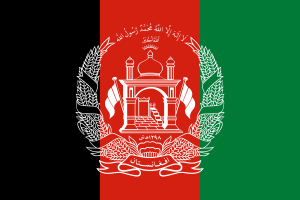Afghanistan: Rural Governance and Development Programme

project description
The Financing Agreement ACA/2010/21773 “Afghanistan Rural Governance and Development Programme 2010” was implemented under indirect and direct management with the World Bank Afghanistan Reconstruction Trust Fund and bilateral partners, with a total budget of €74,005,187.67 million. The Overall Objective of the action was to contribute to State building and to improve rural development and overall socio-economic recovery in Afghanistan. The project purpose was to improve sub-national governance and rural investment.
In views of the objective and purpose of the action, four results were expected to be achieved:
- Result 1: State institutions and processes are developed at sub-national level. The capacity of the Independent Directorate of Local Governance (IDLG) to regulate the new sub-national governance framework is developed; communities are mobilized to articulate their needs and identify priorities and solutions; District Development Assemblies’ capacity develops to become district level coordination entities; Districts Development Plans are prepared and consolidated in Provincial Development Plans; District management committees are established and trained in disaster and risk management; Village and Districts Councils are (re-)elected; management of public service delivery at provincial and district levels is improved.
- Result 2: Investments through national programmes of the Ministry of Rural Rehabilitation and Development (MRRD) are increased. Productive and Socio-economic rural assets and rural roads are built or rehabilitated; operational and maintenance capacity is built; community-based natural resources management systems are effective; farmers’ cooperatives and other private sector initiatives are strengthened.
- Result 3: The strategic and policy development capacity of MRRD at central level is increased. The Directorate of Policy and Planning of MRRD is strengthened and able to develop policies and strategies in rural development, to initiate and monitor investment programmes; the national programmes of MRRD are rationalised and synergies developed; ARD cluster coordination is adequate; Afghanistan Institute for Rural Development (AIRD) implements policy support studies; MRRD is restructured and staffed sustainably to respond to its core mandate; public finance management is improved.
- Result 4: The capacity of MRRD offices at provincial and lower levels to contribute to development planning is increased. MRRD offices in the provinces and districts plan, implement, monitor and report on MRRD activities in their area of responsibility.
We conducted an assessment on behalf of the European Union on the past performance of the ”Afghanistan Rural Governance and Development Programme 2010”, paying particular attention to its results measured against its objectives, and the reasons underpinning such results. The assessment paved the basis for key lessons and recommendations in order to improve future similar actions, identifying lessons learned from years of implementation including on the synergies and complementarity of the components particularly the impacts of the expected results. These recommendations were presented to the European Union in a Final Report and presentation and served to inform future projects.
services provided
- Conducted context and stakeholder analysis
- Reconstructed the Intervention Logic and described the Theory of Change, based on programme documents and interviews
- Prepared the evaluation matrix including evaluation questions with judgement criteria, indicators and methods of data collection and analysis
- Conducted in-depth document analysis
- Conducted interviews
- Organised meetings with different beneficiaries and stakeholders
- Collected and analysed data using diverse techniques
- Formulated overall assessment, conclusions and recommendations


